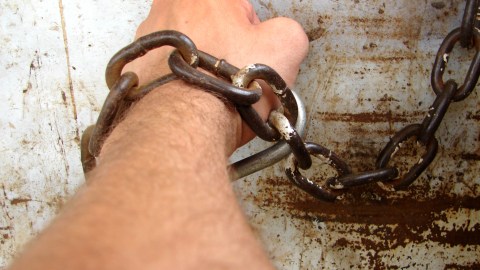Racial Discrimination: The Reality Show

I used to picture my neighbors, my bosses, my drinking buddies, all faithfully keeping thoughts of racial conflict out of their minds the same way the pop-up zapper software on my computer blocked annoying ads. It was a nice thought, but it contradicted what my one of my cigar buddies revealed to me. “It’s not that I don’t think about your being black,” he’d said. “I just don’t think about it all the time like you do.”
When I first wrote the essay “Racial Discrimination: The Reality Show” a few years ago, I thought it was an over-the-top way to emphasize the absurdities of the reality show concept. And on a deeper level, an outside-the-box method that illustrated just how illogical someone had to be to simply dismiss the discrimination suffered by African Americans, as if hundreds of years of systemic racism were as insignificant and as inconsequential as getting a traffic ticket.
The visceral power of the imagery, the simplicity of the metaphors, and the stark, declarative narrative voice of the original essay has lost none of its potency. In fact, with the continued success of the reality show genre, and an increased hypersensitivity about racial diversity and historical racial inequities, this satire has become more relevant than ever.
The disproportionate social and economic inequities borne by generations of African Americans have not simply disappeared over night because the country has been trying to do the right thing since the sixties. For too long, we have all talked about race in this country at arm’s length, dehumanizing the very people whose interests we claim to be concerned about.
It was this sense of frustration that led to turning the essay “Racial Discrimination: The Reality Show” into a video.
This video, like the satire from which it is derived, isn’t really meant to be educational in the traditional sense. It is meant to overwhelm, to shock, to disgust, to frighten. It is meant to help those people like my old cigar buddy understand why black people are prone to think about race all the time. In short, it is meant to help anyone who is not a minority “see things through our eyes.”
According to Courtney E. Martin, “for white people, one of the biggest challenges is to have racial clear-sightedness.” In his article The Power of the “Post-Racial” Narrative, Martin asserts “we can’t truly see ourselves unless we’re willing to look at our whiteness. We must take off the blinders and examine our collective and personal histories, not in terms of the absence of race but in terms of the intrinsic and powerful presence of it.”




